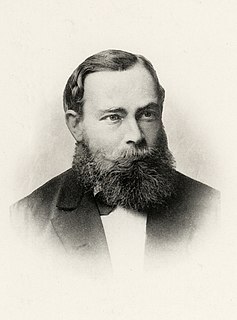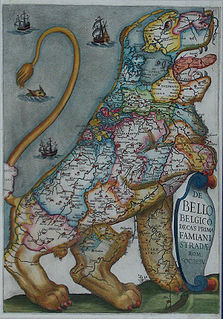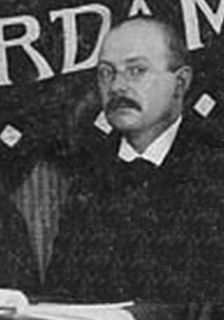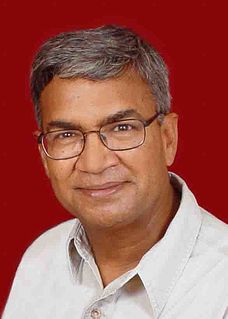Related Research Articles

Friedrich Ludwig Gottlob Frege was a German philosopher, logician, and mathematician. He worked as a mathematics professor at the University of Jena, and is understood by many to be the father of analytic philosophy, concentrating on the philosophy of language, logic, and mathematics. Though he was largely ignored during his lifetime, Giuseppe Peano (1858–1932) and Bertrand Russell (1872–1970) introduced his work to later generations of philosophers.
Guru is a Sanskrit term for a "teacher, guide, expert, or master" of certain knowledge or field. In pan-Indian traditions, guru is more than a teacher. In Sanskrit, guru means the one who dispels the darkness and takes towards light, traditionally a reverential figure to the student, with the guru serving as a "counselor, who helps mold values, shares experiential knowledge as much as literal knowledge, an exemplar in life, an inspirational source and who helps in the spiritual evolution of a student". A guru is also one's spiritual guide, who helps one to discover the same potentialities that the guru has already realized. In the Tagalog language, Indonesian and Malay the word means teacher.
In mathematical logic, propositional logic and predicate logic, a well-formed formula, abbreviated WFF or wff, often simply formula, is a finite sequence of symbols from a given alphabet that is part of a formal language. A formal language can be identified with the set of formulas in the language.
Jersey Dutch was an archaic Dutch dialect formerly spoken in and around Bergen and Passaic counties in New Jersey from the late 17th century until the early 20th century. It may have been a partial creole language based on Zeelandic and West Flemish Dutch dialects with English and possibly some elements of Lenape.
Dutch orthography uses the Latin alphabet and has evolved to suit the needs of the Dutch language. The spelling system is issued by government decree and is compulsory for all government documentation and educational establishments.
GiacomoZabarella was an Italian Aristotelian philosopher and logician.
Non-classical logics are formal systems that differ in a significant way from standard logical systems such as propositional and predicate logic. There are several ways in which this is done, including by way of extensions, deviations, and variations. The aim of these departures is to make it possible to construct different models of logical consequence and logical truth.
Theodiscus was a term used in the early Middle Ages to refer to the West Germanic languages. The Latin term was borrowed from the Germanic adjective meaning "of the people" but, unlike it, was used only to refer to languages. In Medieval Western Europe non-native Latin was the language of science, church and administration, hence Latin theodiscus and its Germanic counterparts were used as antonyms of Latin, to refer to the "native language spoken by the general populace". They were subsequently used in the Frankish Empire to denote the native Germanic vernaculars. As such, they were no longer used as antonym of Latin, but of walhisk, a language descendant from Latin, but nevertheless the speech of the general populace as well. In doing so Latin theodiscus and the Germanic reflexes of *þiudiskaz effectively obtained the meaning of "Germanic", or more specifically one of its local varieties – resulting in the English exonym Dutch, the German endonym Deutsch, the Dutch exonym Duits, and the Dutch endonym Diets, all of which are cognates of theodiscus, which in Italian yielded tedesco.
Dick Herman Jacobus de Jongh is a Dutch logician and mathematician and a retired professor at the University of Amsterdam. He received his PhD degree in 1968 from the University of Wisconsin–Madison under supervision of Stephen Kleene with a dissertation entitled Investigations on the Intuitionistic Propositional Calculus. De Jongh is mostly known for his work on proof theory, provability logic and intuitionistic logic. De Jongh is a member of the group collectively publishing under the pseudonym L. T. F. Gamut. In 2004, on the occasion of his retirement, the Institute for Logic, Language and Computation at the University of Amsterdam published a festschrift in his honor.
Martin Stokhof is a Dutch logician and philosopher. Stokhof wrote a joint Ph.D. dissertation with Jeroen Groenendijk on the semantics of questions, under the supervision of Renate Bartsch and Johan van Benthem. He was also an important figure in the development of dynamic semantics. He is also known for his work on Ludwig Wittgenstein.

The Low Countries comprise the coastal Rhine–Meuse–Scheldt delta region in Western Europe, whose definition usually includes the modern countries of Luxembourg, Belgium and the Netherlands. Both Belgium and the Netherlands derived their names from earlier names for the region, due to nether meaning "low" and Belgica being the Latinized name for all the Low Countries, a nomenclature that went obsolete after Belgium's secession in 1830.

In linguistics, Old Dutch or Old Low Franconian is the set of Franconian dialects spoken in the Low Countries during the Early Middle Ages, from around the 5th to the 12th century. Old Dutch is mostly recorded on fragmentary relics, and words have been reconstructed from Middle Dutch and Old Dutch loanwords in French.

Uitgeverij Lannoo Groep is a Belgian publishing group, based in Tielt, with assets in Belgium and the Netherlands. Its Belgian subsidiary is Uitgeverij Lannoo. Its Dutch subsidiary is LannooMeulenhoff. Over the years Lannoo evolved from Catholic and Flemish to an open, commercial publishing house.
Jeroen Antonius Gerardus Groenendijk, is a Dutch logician, linguist and philosopher, working on philosophy of language, formal semantics, pragmatics.

Gerrit Mannoury was a Dutch philosopher and mathematician, professor at the University of Amsterdam and communist, known as the central figure in the signific circle, a Dutch counterpart of the Vienna circle.

Afrikaans is a daughter language of Dutch and—unlike Netherlands Dutch, Belgian Dutch and Surinamese Dutch—a separate standard language rather than a national variety. As an estimated 90 to 95% of Afrikaans vocabulary is ultimately of Dutch origin, there are few lexical differences between the two languages; however, Afrikaans has a considerably more regular morphology, grammar, and spelling.
Lambert of Auxerre was a medieval 13th century logician best known for writing the book "Summa Lamberti" or simply "Logica" in the mid 1250s which became an authoritative textbook on logic in the Western tradition. He was a Dominican in the Dominican house at Auxerre. His contemporaries were Peter of Spain, William of Sherwood, and Roger Bacon.
Dutch profanity can be divided into several categories. Often, the words used in profanity by speakers of Dutch are based around various names for diseases. In many cases, these words have evolved into slang, and many euphemisms for diseases are in common use.
Eduardo Barrio is an Argentine logician.

Anil K. Gupta is an Indian-American philosopher who works primarily in logic, epistemology, philosophy of language, and metaphysics. Gupta is the Alan Ross Anderson Distinguished Professor of Philosophy at the University of Pittsburgh. He is also a Fellow of the American Academy of Arts and Sciences. His most recent book, Conscious Experience: A Logical Inquiry, was published by Harvard University Press in 2019.